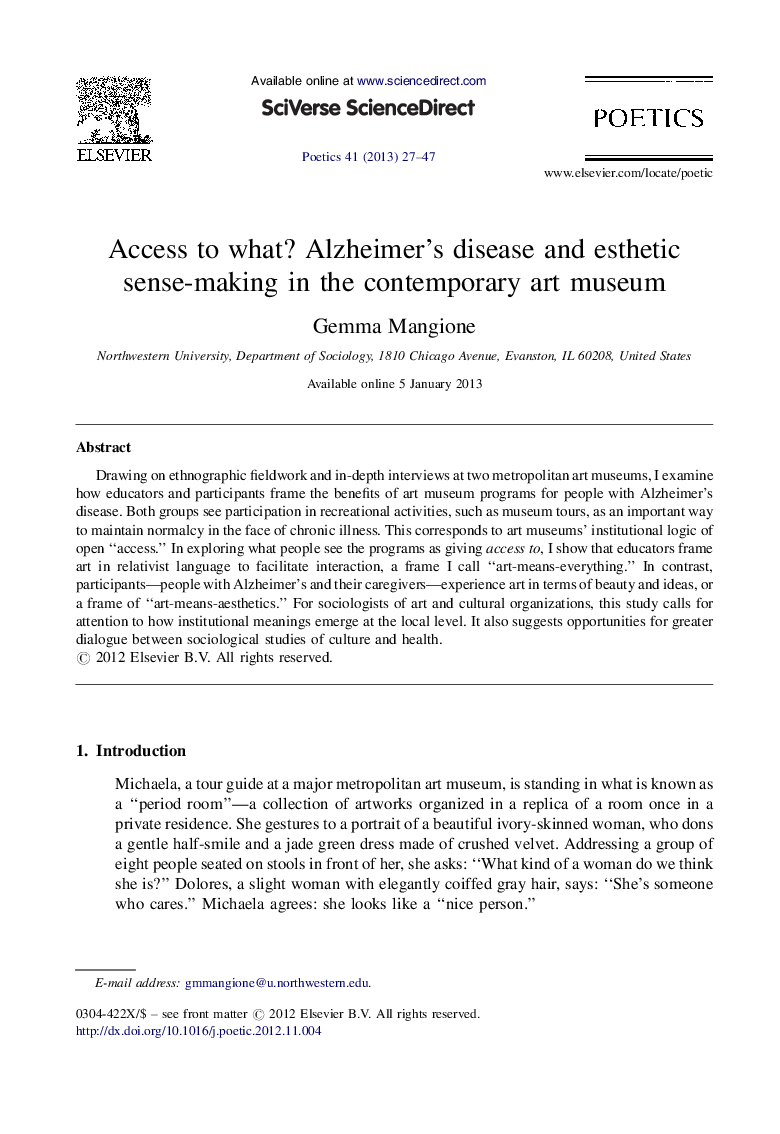| Article ID | Journal | Published Year | Pages | File Type |
|---|---|---|---|---|
| 1128418 | Poetics | 2013 | 21 Pages |
Drawing on ethnographic fieldwork and in-depth interviews at two metropolitan art museums, I examine how educators and participants frame the benefits of art museum programs for people with Alzheimer's disease. Both groups see participation in recreational activities, such as museum tours, as an important way to maintain normalcy in the face of chronic illness. This corresponds to art museums’ institutional logic of open “access.” In exploring what people see the programs as giving access to, I show that educators frame art in relativist language to facilitate interaction, a frame I call “art-means-everything.” In contrast, participants—people with Alzheimer's and their caregivers—experience art in terms of beauty and ideas, or a frame of “art-means-aesthetics.” For sociologists of art and cultural organizations, this study calls for attention to how institutional meanings emerge at the local level. It also suggests opportunities for greater dialogue between sociological studies of culture and health.
► Examines how different actors frame museum programs for those with Alzheimer's. ► Museum educators discuss art's value in relativist language. ► Program participants discuss art's value in terms of aesthetics. ► Contributes to theorizing object-actor encounters in the sociology of art. ► Argues for study of institutional meanings at the level of interaction.
